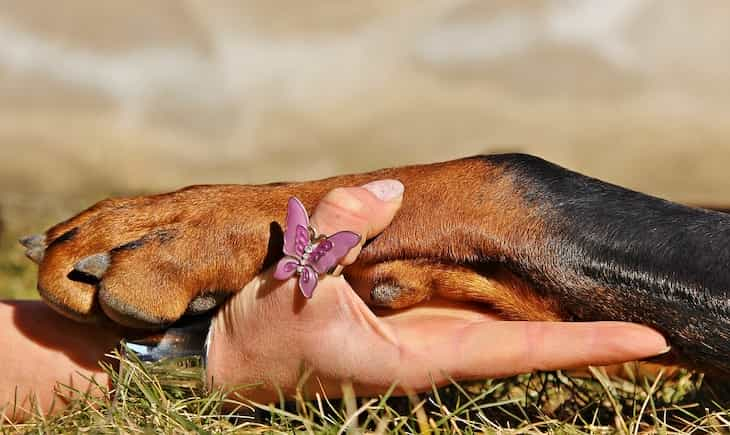Washing Paws After Walks: Train Your Dog
If you walk your dog daily, then you probably have to clean its paws one or more times a day as well.
Small puppies tend to dislike the process a lot, but proper training can help them tolerate it better.
Here are a few tips on how to train your dog and help it get used to paw washing.
Start Early
Begin the training when your puppy is still young.
Younger dogs tend to adapt more easily to new routines.

Positive Association
Make the paw-washing experience positive.
Use a calm and reassuring tone during the process, and offer treats or praise afterward.
Introduce Paw Handling
Gently handle your puppy's paws regularly, even when you're not washing them.
This helps your puppy get used to the sensation.
Use Pet-Friendly Soap
Choose a mild and pet-friendly soap to wash your puppy's paws.
Make sure it's safe for dogs and won't cause irritation.
Gradual Exposure to Water
Introduce your puppy to water gradually.
Start with a damp cloth and slowly progress to a shallow container of water.
This helps your puppy get accustomed to the sensation of wet paws.
Use Lukewarm Water
Ensure the water is lukewarm, as extreme temperatures can be uncomfortable for your puppy.
Short Sessions
Keep the paw-washing sessions short initially.
This prevents overwhelming your puppy and helps build positive associations.
Consistency is Key
Be consistent in your approach.
Regularly wash your puppy's paws, especially after walks, to make it a familiar routine.
Reward System
Always reward your puppy for good behavior.
This positive reinforcement encourages cooperation during paw washing.
Patience
Training takes time.
If your puppy seems anxious or resists initially, stay patient and continue reinforcing positive associations.
Eventually, your puppy will grow more tolerant of paw washing.
Previously, we talked about cat groomers.
